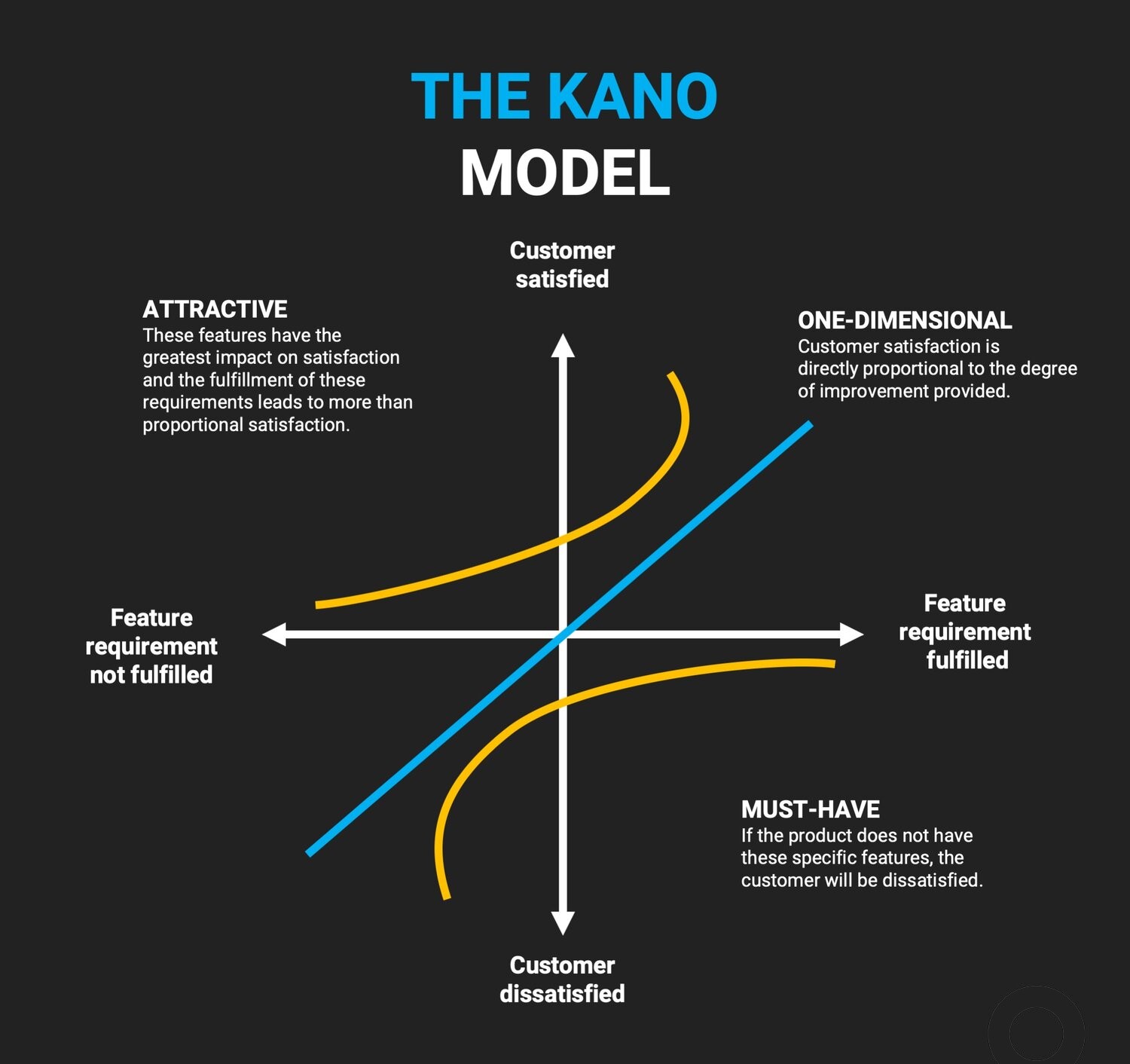The Kano Model shows competitive advantage through knowledge. Therefore it shows the connection between product features and customer satisfaction.
The Kano model structures and analysis the different types of customer requirements and sorts them into basic, performance and enthusiasm requirements. On the basis of this model, which is also known as the customer satisfaction model, products and services can be further developed which customers are more likely to pay for. The model is named after its inventor, the Japanese professor Noriaki Kano somewhen around 1980.
Thinking about our daily work, the Kano Model is quite interesting for product and service development but can also be used to give some guidance for planned product changes.
Typically when start working with the Kano Model a questionnaire is used to categorize the requirements. This questionnaire then determines which customer requirements should be taken into account for a product and to what extent.
The Kano Model recognizes that customer requirements have three different characteristics that make the purchase of a product more likely if they are met:
Basic Requirements
These are must have requirements by customers for a product or service. There are not highly considered and they alone are not the trigger for the purchase. But if these are missing the dissatisfaction is great. Old but still working example: you wouldn’t buy a car without windshield wipers or a cellphone without internet capability. It is expected to be there.
Performance Requirements
Requirements that are not taken for granted but are demanded. With a growing availability customer satisfaction grows with it. Performance requirements are defined by the customer, when we stick with the example of a car that means e.g. color, horse power, all wheel drive carplay etc. These are normal customer requirements that ensure higher quality of the product.
Enthusiasm Requirements
The requirements are not expected by the customer but create enthusiasm when the are fulfilled. E.g. if you buy a new car in the area of the alps and you get free snow chains of a year of free car washes. As customer you do not expect this but you are thrilled when you get it. In other terms we are talking about going the extra mile.
In addition, with the Kano Model you find also those product or service features that are insignificant for customers satisfaction or are even leading to dissatisfaction and therefore rejection of the service or product. However, the absence of such characteristics does not have a positive effect.
What we learn from the Kano Model is that those enthusiastic characteristics become basic requirements over time. You can see this changes ongoing particularly in the technical industry such as car manufacturers and features of new cars, what comes now with the basic equipment was back in time all at extra cost.
The Kano model in practice
Following the Kano approach development teams should constantly keep an eye on the current basic requirements of their customers and try to fulfill on product developments new enthusiasm functions or features.
Customer requirements are typically identified through market research. With questionnaires customers have the chance to explicitly describe their expectations as well as what they don’t need.
Checklist: The Kano model at a glance
- With the Kano systematic you are able to structure customer requirements into their characteristics
- If basic characteristics are missing, dissatisfaction will occur and the product or service will not fly
- Performance characteristics are showing if you understand what the customer wants and if you meet those characteristics the customer is satisfied
- Enthusiasm characteristics are showing if you are willing to go the extra mile – long term customer loyalty will be the award
- Over time characteristics will shift – so don’t make the mistake and rest on your success



